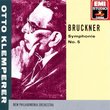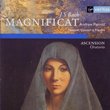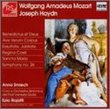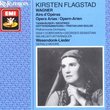| All Artists: Heinrich Schutz, Michael Praetorius, Emma Kirkby, David [bass] Thomas, Taverner Consort Choir & Players, Andrew Parrott Title: Schütz Weihnachtshistorie (Christmas Story); Praetorius Motets Members Wishing: 0 Total Copies: 0 Label: Angel Records Original Release Date: 1/1/2001 Re-Release Date: 9/4/2001 Album Type: Import Genres: Special Interest, Pop, Classical Styles: Holiday & Wedding, Vocal Pop, Opera & Classical Vocal, Historical Periods, Baroque (c.1600-1750), Sacred & Religious Number of Discs: 1 SwapaCD Credits: 1 UPC: 724356135321 |
Search - Heinrich Schutz, Michael Praetorius, Emma Kirkby :: Schütz Weihnachtshistorie (Christmas Story); Praetorius Motets
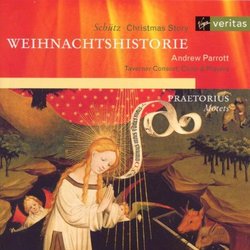 | Heinrich Schutz, Michael Praetorius, Emma Kirkby Schütz Weihnachtshistorie (Christmas Story); Praetorius Motets Genres: Special Interest, Pop, Classical
|
Larger Image |
CD DetailsSimilar CDs |
CD ReviewsBeautiful .. but very English Leslie Richford | Selsingen, Lower Saxony | 02/12/2005 (4 out of 5 stars) "This recording, made in 1985 and 1986 for EMI at London?s Abbey Road studios, is one of a series of ?beauties? made by Andrew Parrott and his Taverner Consort, and although I am not giving it five stars (for reasons which I will enunciate in a moment), there can be no doubt that the CD has a great deal going for it: excellent soloists, brilliant engineering and, last but not least, incredibly beautiful music. Heinrich Schütz?s ?Weihnachts-Historie? was first performed in 1664 at the Court of Dresden in Saxony and consists of recitatives with texts from the Gospels, rather like the later Passions of J. S. Bach, but in this case interrupted by so-called ?intermedia?, passages for one, two or three voices with words of the angel, the high priests or Herod. The part of the evangelist is here taken by Nigel Rogers, the angel by the truly angelic Emma Kirkby, other parts are sung by David Thomas, bass, Tessa Bonner, soprano, and other well-known early music specialists. The whole is accompanied by the Taverner Players with violins, a viola, a bass violin, tenor, bass and great bass viols, violone, curtal, recorders, cornetts, sackbuts, trumpets, timpani, theorbo and organ. The introduction to Schütz?s piece having been lost, Andrew Parrott and Hugh Keyte have re-composed it. My problems with the recording begin right there. The re-composed beginning sounds just too bright and airy for 17th century German music. Of course, nobody knows what it really sounded like back then, but anyone who is aware of Protestant German tradition will be taken aback at the typically English light-heartedness with which the piece begins; the German tradition is generally much ?heavier?, seeming to be formed by the suffering of the 30 Years? War (1609 ? 1649). And this ?criticism?, if such it is, applies to the rest of the Schütz piece, which generally sounds too joyful and too English, including ? surprisingly ? the pronunciation and declamation of the German texts: Nigel Rogers as evangelist cannot convince me completely with his declamation of the sacred text; and Emma Kirkby, wonderful though she is, still seems to have had some problems pronouncing German. Then there is the thorny problem of the soprano voices: Andrew Parrott opts for female singers, adjudging that he could scarcely find boy trebles who have the necessary training in both music and German. Somehow, this changes the ?feeling? of the whole piece. After listening to the Parrott CD, I dug out a recording from 1986 published by the German audiophile company Dabringhaus und Grimm. The Schütz piece is there performed by the Musicalische Compagney with a smaller instrumental ensemble and all-male voices. David Cordier?s soprano-like countertenor is probably not to everyone?s taste, but I found it, on balance, to evoke the spirit of the 17th century better than Emma Kirkby or any female voice. And Harry Geraerts as the evangelist makes a much more convincing job of declaiming the text in the German protestant tradition so that I immediately felt more at home with his version than with Nigel Rogers (whose voice is, nonetheless, delightful). The Parrott disc is complemented by four motets by Michael Praetorius, pieces that are familiar as hymns to every German churchgoer, but in these versions are nowadays seldom heard. Here, too, Parrott goes for a full and very joyful sound, something that seems to me to be quite foreign to the German Lutheran tradition. As, however, I have never heard any other recordings of these pieces, I shall leave it at that. The concluding number, ?In dulci jubilo? is performed at incredible volume by all six trumpets and all the other instruments plus choir and can give one an idea of what the music might have sounded like if it had been possible to put together musical forces of this magnitude in North Germany in the first half of the seventeenth century, although I have a suspicion that it is very unlikely to have happened. All in all, this is a beautiful disc, but raises some questions as to ?authenticity?. " All round excellent recording Steven Guy | Croydon, South Australia | 11/15/2005 (5 out of 5 stars) "I bought this recording on CD in the late 1980s - one of my very first CDs. I have never grown tired of this recording and I recommend it to all music lovers.
The Christmas Historia is well performed and the voices and instruments all make attractive sounds. The four motets by Praetorius are performed with great style, colour and zest. Parrott follows Praetorius's instrumentations quite closely and Wachet Auf and In Dulci Jubilo are particularly impressive. A very good disc of Christmas music. Please investigate!" |

 Track Listings (23) - Disc #1
Track Listings (23) - Disc #1
